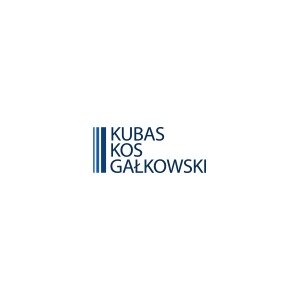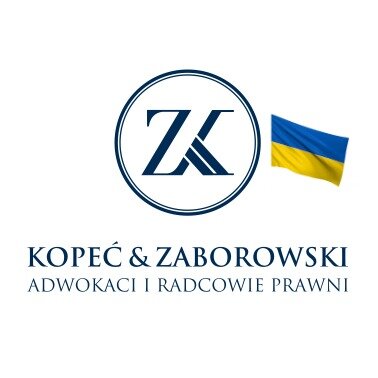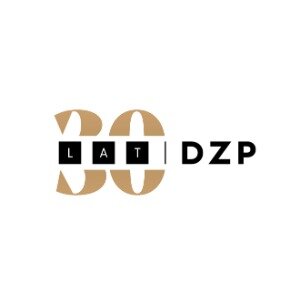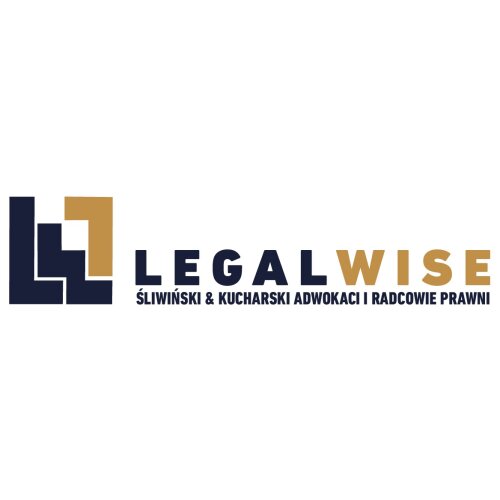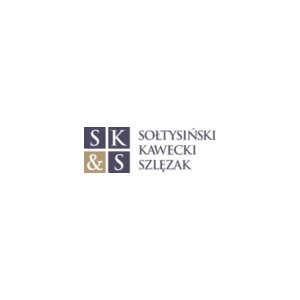Best Energy Regulatory Law Lawyers in Warsaw
Share your needs with us, get contacted by law firms.
Free. Takes 2 min.
List of the best lawyers in Warsaw, Poland
About Energy Regulatory Law in Warsaw, Poland
Energy Regulatory Law in Warsaw, Poland governs the production, transmission, distribution, and trading of energy, including electricity, natural gas, and renewable resources. As the capital and largest city of Poland, Warsaw serves as the administrative center for several energy regulatory bodies, including the offices of the President of the Energy Regulatory Office (URE). This legal field is designed to ensure the secure, efficient, and fair operation of energy markets, promote competition, protect consumers, and ensure compliance with national and European Union regulations.
Why You May Need a Lawyer
Individuals and businesses may require legal assistance in Energy Regulatory Law for a variety of reasons. Some common scenarios include:
- Navigating licensing requirements for energy production, distribution, or trading
- Handling disputes with energy suppliers, grid operators, or regulatory authorities
- Participating in public procurement or tender processes in the energy sector
- Complying with renewable energy regulations and obtaining subsidies or certificates of origin
- Addressing regulatory investigations or enforcement actions
- Negotiating and drafting energy supply or infrastructure contracts
- Ensuring corporate compliance with EU and national energy market rules
- Guiding investments, mergers, or acquisitions involving energy assets
Local Laws Overview
Energy Regulatory Law in Warsaw, Poland is shaped by a mix of Polish legislation and European Union directives. The central governing act is the Energy Law of 1997, which is frequently updated to reflect new technologies, market realities, and EU requirements. Key aspects of local laws include:
- Licensing: Any entity engaging in electricity, gas, or heat production, distribution, or trading must obtain appropriate licenses from the URE.
- Tariff Approvals: Energy providers must submit their tariffs for approval to ensure fair pricing and prevent monopolistic practices.
- Grid Access: Laws mandate non-discriminatory access to energy infrastructure for all market participants.
- Renewable Energy: There are specific regulations for promoting renewable energy portfolios, including support schemes and guarantee of origin certificates.
- Consumer Protection: Strong rules are in place to protect end users, ensure transparency, and support dispute resolution.
- Market Oversight: The URE has significant investigative and enforcement powers to supervise market conduct and ensure compliance with legal norms.
- Environmental and Safety Regulations: All energy activities must comply with environmental laws and safety standards.
Frequently Asked Questions
What is the main regulatory body overseeing energy markets in Warsaw, Poland?
The President of the Energy Regulatory Office (Urząd Regulacji Energetyki - URE) is the principal authority for supervising energy markets in Poland, including in Warsaw.
Do I need a license to produce or sell electricity in Warsaw?
Yes, entities must obtain a relevant license from the URE to legally produce, distribute, or trade electricity in Warsaw.
Are there special rules for renewable energy sources?
Yes, there are dedicated provisions and support schemes for renewable energy, including feed-in tariffs, auctions, and the obligation to obtain certificates of origin.
How are energy tariffs set and approved?
Energy companies submit proposed tariffs to the URE for approval to ensure fair, justified, and transparent pricing for consumers.
Can I switch my energy supplier in Warsaw?
Yes, Polish law allows for the free choice of energy supplier, and switching procedures are regulated to protect consumer rights.
How are disputes in the energy sector resolved?
Disputes with suppliers, grid operators, or the URE can be brought before the URE, arbitration bodies, or competent courts depending on the issue's nature.
What are the penalties for non-compliance with energy regulations?
Non-compliance can lead to administrative penalties, fines, suspension, or revocation of licenses, depending on the violation's severity.
Are there opportunities for foreign investors in Warsaw's energy sector?
Yes, the Polish energy sector is open to foreign investors, though strict regulatory compliance and licensing are required.
What support exists for implementing energy efficiency or renewable energy projects?
There are national and EU programs offering grants, tax incentives, and legal support for energy efficiency and renewable projects.
Where can I file complaints regarding my energy supplier?
Consumers can submit complaints directly to the URE, the Office of Competition and Consumer Protection (UOKiK), or local consumer advocates.
Additional Resources
- Energy Regulatory Office (URE) - main authority for energy regulation - Ministry of Climate and Environment - responsible for energy policy - Office of Competition and Consumer Protection (UOKiK) - oversees fair competition and protects consumer rights - Polish Power Exchange (TGE) - organizes trading in energy products - Local bar associations and legal chambers offering lists of licensed energy law practitioners - NGOs promoting renewable energy and efficiency such as the Polish Renewable Energy Association
Next Steps
If you believe you require legal assistance in Energy Regulatory Law in Warsaw, Poland, consider these steps:
- Clarify your issue and gather all related documentation
- Contact a lawyer or law firm specializing in energy law for an initial consultation
- Check the credentials and references of your chosen legal professional
- Discuss possible strategies, outcomes, and costs before proceeding
- Stay updated on developments in energy regulations impacting your case
- If you have a consumer issue, consider submitting a complaint to the URE or a consumer protection body
An experienced lawyer can help you navigate the Polish regulatory environment, represent your interests before authorities, and ensure compliance with all applicable laws and standards in the energy sector.
Lawzana helps you find the best lawyers and law firms in Warsaw through a curated and pre-screened list of qualified legal professionals. Our platform offers rankings and detailed profiles of attorneys and law firms, allowing you to compare based on practice areas, including Energy Regulatory Law, experience, and client feedback.
Each profile includes a description of the firm's areas of practice, client reviews, team members and partners, year of establishment, spoken languages, office locations, contact information, social media presence, and any published articles or resources. Most firms on our platform speak English and are experienced in both local and international legal matters.
Get a quote from top-rated law firms in Warsaw, Poland — quickly, securely, and without unnecessary hassle.
Disclaimer:
The information provided on this page is for general informational purposes only and does not constitute legal advice. While we strive to ensure the accuracy and relevance of the content, legal information may change over time, and interpretations of the law can vary. You should always consult with a qualified legal professional for advice specific to your situation.
We disclaim all liability for actions taken or not taken based on the content of this page. If you believe any information is incorrect or outdated, please contact us, and we will review and update it where appropriate.






